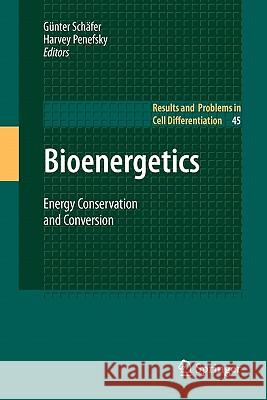Bioenergetics: Energy Conservation and Conversion » książka
Bioenergetics: Energy Conservation and Conversion
ISBN-13: 9783642097362 / Angielski / Miękka / 2010 / 312 str.
The fermentation of sugar by cell-free yeast extracts was demonstrated more than a century ago by E. Buchner (Nobel Prize 1907). Buchner's observations put an end to previous animistic theories regarding cellular life. It became clear that metabolism and all cellular functions should be accessible to explication in chemical terms. Equally important for an understanding of living systems was the concept, explained in physical terms, that all living things could be cons- ered as energy converters E. Schrodinger (Nobel Prize 1933)] which generate complexity at the expense of an increase in entropy in their environment. Bioenergetics was established as an essential branch of the biochemical sciences by the investigations into the chemistry of photosynthesis in i- lated plant organelles O. Warburg (Nobel Prize 1931)] and by the discovery that mitochondria were the morphological equivalent that catalyzed cellular respiration. The ?eld of bioenergetics also encompasses a large variety of ad- tional processes such as the molecular mechanisms of muscle contraction, the structure and driving mechanisms of microbial ?agellar motors, the energetics of solute transport, the extrusion of macromolecules across membranes, the transformation of quanta of light into visual information and the maintenance of complex synaptic communications. There are many other examples which, in most cases, may perform secondary energy transformations, utilizing - ergy stored either in the cellular ATP pool or in electrochemical membrane potentials.











